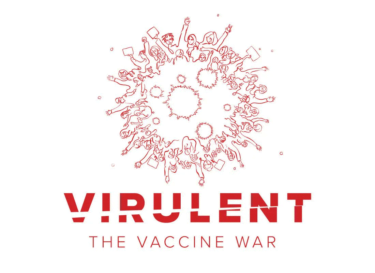I am not old enough to remember diphtheria. I am old enough to remember measles, chicken pox, mumps, and, dimly, polio. Folk wisdom then was clear that the first three of those were hard to escape in childhood and could be dangerous, but that they were much worse if you got them as adults. Polio terrified people.
I have a theory of generations that goes like this: 80 years is about the longest our society remembers anything. Once past the generations who lived through a major event, we are free to ignore the lessons they learned. A vaccine against diphtheria arrived in 1942, followed by pertussis (1957), tetanus (1961), polio (1962), and measles (1968) – long enough that today’s parents don’t remember what these diseases were like – and neither do an increasing number of grandparents. They have no idea how desperately everyone wanted these vaccines circa 1960.

“How is that natural?” a young mother asks of sticking a needle filled with particles of disease into a baby at the outset of Virulent: The Vaccine War, a new documentary film produced by Laura Davis and Tjardus Greidanus, who also wrote and directed the film. Responds Terence Dermody, the chair of pediatrics at the University of Pittsburgh: “Disease absolutely is natural.”
Early on, Paul Offitt, a pediatrician who specialises in infectious diseases, divides vaccine hesitant people into two groups: one is those who are genuinely hesitant, and who often respond to scientific explanations and compassion from a doctor who engages with their issues. The other… is the much smaller group of conspiracy theorists and people who genuinely believe their children have been harmed by vaccines. The second of these, the film shows, colonises the first via online forums on sites like Facebook and YouTube, helped by algorithms that push everyone to extremes.
Particularly if you expand your lens outside of the US, there are bound to be more groups than that. But this schema helps the film narrow its focus to its real subject: the modern anti-vaxx movement as it’s developed from Andrew Wakefield’s fraudulent paper and its pickup by Jenny McCarthy and other celebrities, through to today’s aggressive profiteers and their followers, who seek out women who’ve posted online about their children’s deaths and seek to turn them into evidence.
The film features a broad array of voices: activists on both sides, scientists, bereaved parents, and a former vaccine resister whose views were forced to change abruptly when her youngest child’s heart transplant made being around her unvaccinated siblings too risky.
The movie works through several of these human stories before profiling several of the movement’s best-known spokespeople.
“Expertise is no match for a good story” – especially when the story is delivered by an attractive blonde celebrity or the son of a revered politician. One of the loudest spokespeople against vaccines is Robert F. Kennedy, Jr., who insists he’s not anti-vaxx but pro-science and accuses CDC scientists and Bill Gates of profiteering. When NBC reporter Brandy Zadrozny checked his sources, most wouldn’t speak to her for fear of career repercussions and the retiree who did explained how Kennedy was misinterpreting his work.
From there, the film moves on to outlining more recent, more aggressive tactics, stressing the profits made by the loudest anti-vaxx campaigners. Also chilling is the movement’s co-option of language derived from the struggles for civil rights and reproductive rights, appropriating slogans like “my body, my choice” and “fighting” for “freedom”. As epidemiologists’ warnings of new outbreaks of measles and other preventable diseases materialise, the film highlights the battle over the passage of California’s 2019 vaccination law, which cracked down on the use of the personal medical exemptions that were filling the schools with unvaccinated children.
Overall, this is a well-done portrait of the American anti-vaxx movement as it’s developed over time. Well-informed skeptics are unlikely to find a lot that’s new, but the personal stories offer food for compassion. One of these is Offit’s own, which he gives in response to Kennedy’s accusation that he’s only in vaccines for the money. As a young child, Offit was kept on a pediatric polio ward while he recovered from surgery to correct a clubfoot. He never lost the memory of the vulnerable children he saw there or his resulting desire to protect them. “How exactly does Bobby Kennedy make the world a better place, please tell me that?” he asks, exasperated.
Offitt also offers a bit of extra perspective on Wakefield’s paper, reminding us that it had 13 authors – and eight study subjects. “Just as a tip to future epidemiologists, you should always have more, more study subjects than authors.” Words worth remembering.



